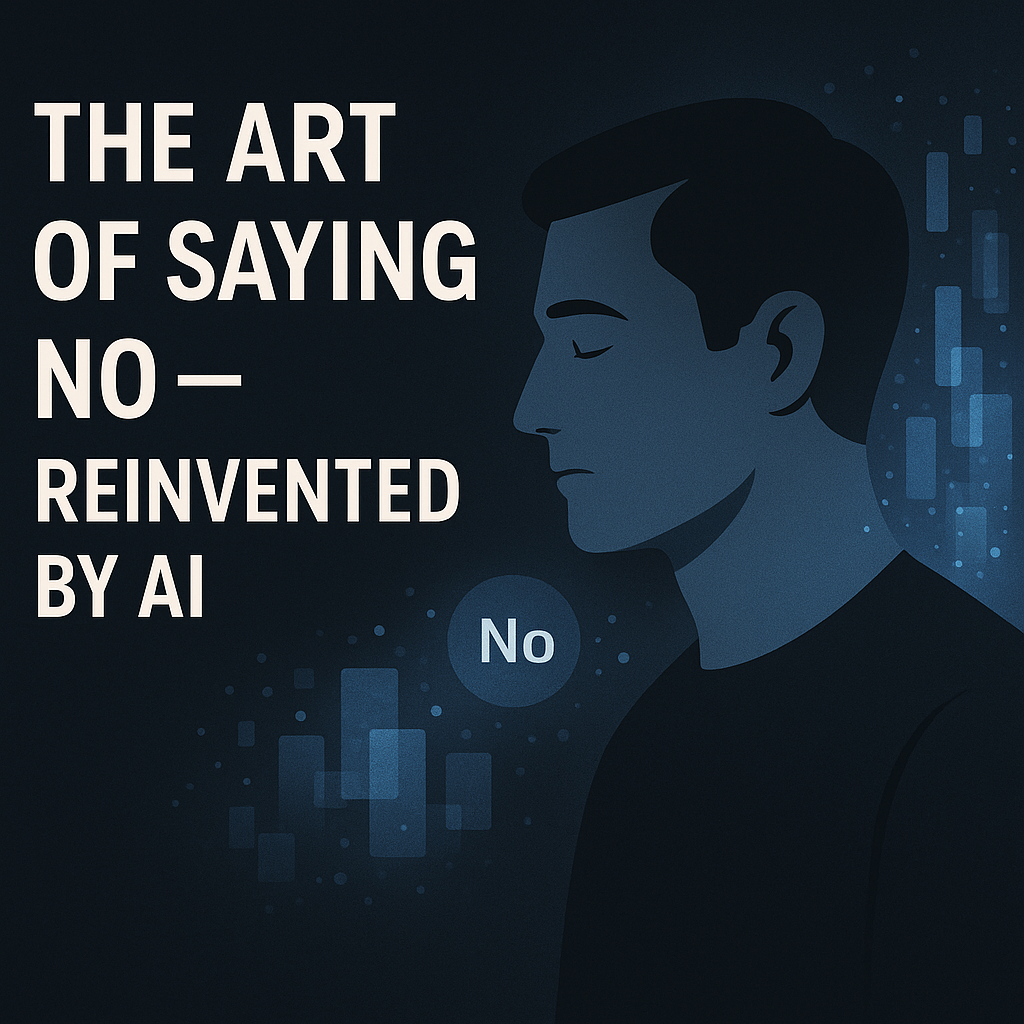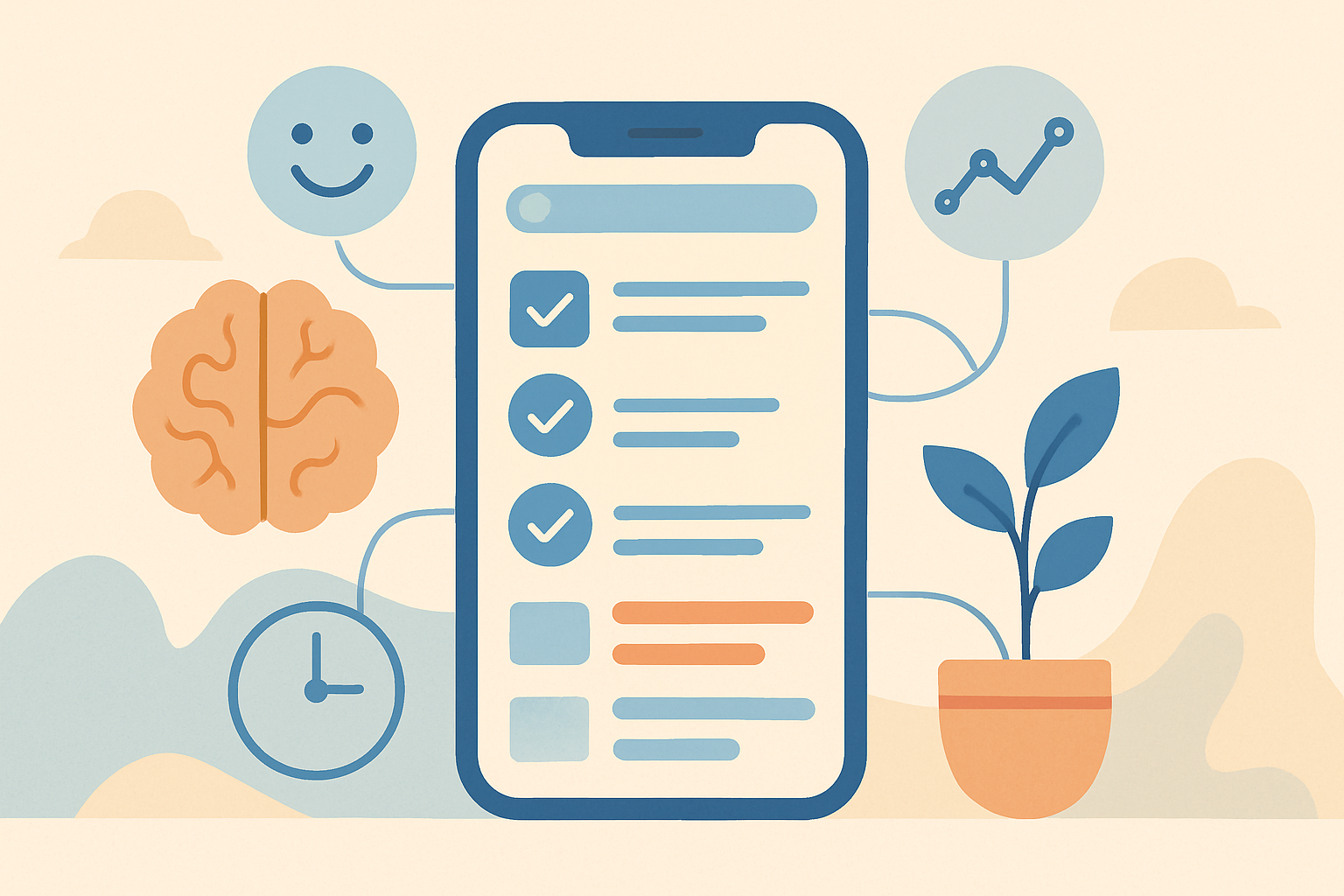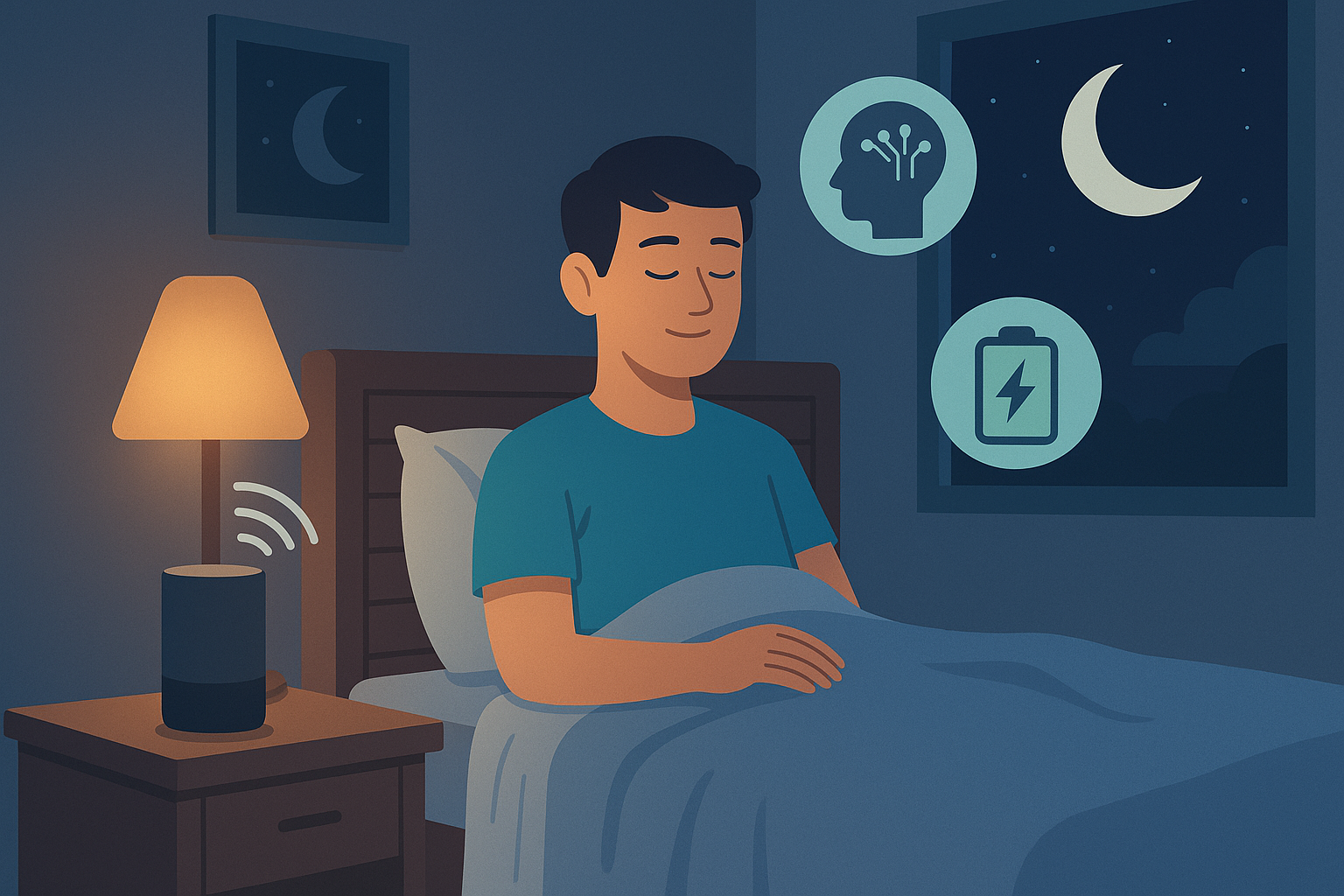In a world that rewards yes, the smartest people are learning the value of no.
Saying no isn’t rejection — it’s redirection. It’s the quiet discipline that protects your focus, your energy, and your purpose. AI
But in a hyper-connected age, where notifications demand attention and digital calendars overflow, saying no has become harder than ever. That’s where artificial intelligence enters the picture — not to silence your voice, but to amplify your boundaries.
AI can now help you design systems that make no your default response to distraction.

AI The Psychology Behind Saying No
Every “yes” is a small withdrawal from your future energy.
Behavioral psychology shows that humans overcommit because of short-term social reward: the dopamine rush of being helpful or agreeable.
But over time, this creates what cognitive scientists call attention debt — when too many commitments dilute the mental space needed for deep work and creativity.
AI helps you recognize and manage that debt.
By analyzing your patterns — from calendar density to task completion — AI reveals where your boundaries fail and where saying no can protect your focus.
Example:
Reclaim AI notices that your schedule consistently exceeds your available hours. It automatically declines low-priority meetings or suggests rescheduling.
The result: fewer obligations, more intentional output.
How AI Helps You Prioritize What Matters
Most people don’t say no because they lack clarity. AI solves that problem by making clarity measurable.
It learns what tasks align with your goals, what drains your time, and what truly moves the needle.
Then, it filters everything else out.
| Area | AI Insight | Example Response |
|---|---|---|
| Detects repetitive low-value requests | Auto-generates polite decline | |
| Meetings | Identifies redundant events | Suggests async update |
| Tasks | Tracks ROI of activities | Flags low-impact work |
| Energy | Analyzes focus patterns | Recommends breaks or refusals |
AI doesn’t just tell you what to do — it tells you what not to.
Building Systems That Say “No” for You
Imagine a system that acts like a digital gatekeeper, quietly protecting your attention.
Through AI scheduling, automation, and smart assistants, that system already exists.
Example workflow:
- Reclaim AI blocks focus time automatically and rejects overlapping events.
- Notion AI organizes tasks by importance, pushing nonessential ones to backlog.
- ChatGPT drafts polite responses for declined projects or delayed replies.
- Motion AI reschedules minor obligations around high-focus windows.
The magic isn’t in rejection. It’s in filtering.
You never see most of what doesn’t matter — because AI filtered it before it reached you.
The AI-Enhanced Boundary Blueprint
An AI-driven boundary system works like an invisible personal assistant that knows your limits better than you do.
| Step | Action | AI Role | Outcome |
|---|---|---|---|
| Detect | Track overload signals | Analyze data across apps | Awareness |
| Filter | Identify low-priority requests | Classify patterns | Clarity |
| Decline | Automate polite refusals | Generate messages | Efficiency |
| Protect | Reinforce focus time | Block distractions | Balance |
AI transforms “no” from confrontation into coordination.
You’re not rejecting people — you’re designing a system that respects your capacity.
Example: AI in Daily Decision-Making
You receive 30 Slack messages before 10 AM. Instead of reacting, your AI assistant classifies them: 10 informational, 12 low-priority, 8 requiring attention.
It summarizes the key three, drafts responses, and archives the rest.
Later, you’re invited to two overlapping meetings. Reclaim AI automatically accepts the one that aligns with your current project milestones and declines the other with context.
You didn’t say “no.” Your system did — politely, intelligently, and without stress.
That’s what modern productivity looks like: fewer decisions, deeper focus.
The Emotional Freedom of Intelligent Boundaries
The true value of AI-driven refusal isn’t efficiency — it’s emotional clarity.
When your system handles rejection gracefully, guilt disappears.
AI removes the friction between intention and action.
It allows you to protect what’s meaningful without anxiety or explanation.
Over time, this builds a calm rhythm of decision-making:
You respond to what matters, delegate what can wait, and decline what doesn’t belong.
The result? More space, fewer apologies.
The Connection Between Focus and Refusal
Every “no” creates space for a “yes” that matters.
Deep work, creativity, and meaningful relationships all thrive in protected attention.
AI-based prioritization systems use data to visualize that relationship — showing exactly how fewer commitments lead to higher output.
Example:
Notion AI tracks that cutting just two nonessential meetings per week increases your deep work time by 30%.
The data proves what intuition already knows: simplicity amplifies performance.
The Future of Digital Boundaries
In the near future, AI will handle personal prioritization at a psychological level.
It will read emotional tone, detect burnout, and adjust boundaries automatically — blocking new tasks when your cognitive load peaks.
You won’t just have a digital assistant. You’ll have a guardian of focus.
And that’s where the art of saying no truly evolves — from manual restraint to intelligent design.
Conclusion
Saying no is no longer an act of resistance. It’s an act of intelligence.
AI gives you the tools to protect your most valuable resource — attention — by filtering the noise before it reaches your mind.
With the right system, “no” becomes effortless.
You don’t have to explain your boundaries. You just live within them.
In the end, the most powerful automation isn’t one that does more for you — it’s one that keeps you from doing what doesn’t matter.
Further Reading & Related Insights
Internal link:
- Build a Consistent Night Routine with AI — Learn how consistency and recovery improve focus and emotional clarity.
External links:
Blog
This section provides an overview of the blog, showcasing a variety of articles, insights, and resources to inform and inspire readers.
-

AI Habit Tracking and the New Rhythm of Modern Self-Improvement
AI Habit Tracking. Progress used to depend on discipline. Now, it depends on data.…
-

AI Decision Making and the New Discipline of Intentional Living
AI Decision Making. Every “yes” has a cost. Every time you agree to something…
-

The Perfect AI Night Routine to Sleep Better and Think Smarter
AI Night Routine. Your morning doesn’t begin when you wake up — it begins…
